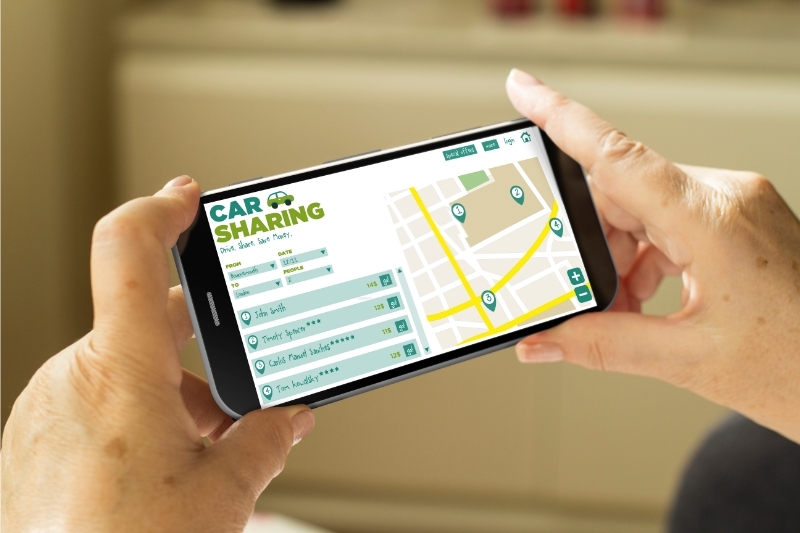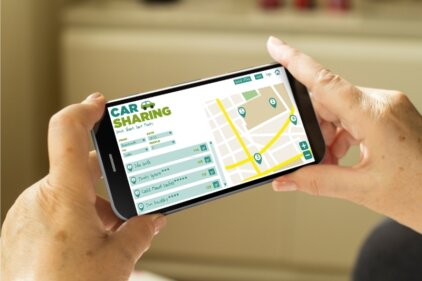In the ever-evolving landscape of urban transportation, a new paradigm has emerged that is reshaping the way we think about car ownership and mobility. Car-sharing services have gained tremendous traction in recent years, offering a flexible and convenient alternative to the traditional model of personal car ownership. We’re excited to explore the rise of these innovative solutions and their profound impact on our cities.
The History and Evolution of Car-Sharing
Car-sharing can trace its origins back to the 1940s, when the first informal car-sharing schemes emerged in Europe. However, it wasn’t until the late 1980s and early 1990s that the concept gained momentum, with the establishment of the first formal car-sharing organisations in Switzerland and Germany. Over the past two decades, the industry has witnessed exponential growth, with car-sharing services now operating in cities across the globe.
Benefits of Car-Sharing Services
The rise of car-sharing has brought about a multitude of benefits for both individuals and communities. Firstly, it offers a more affordable and accessible alternative to car ownership, particularly for those who only require occasional access to a vehicle. By eliminating the costs associated with vehicle maintenance, insurance, and depreciation, car-sharing can provide significant cost savings for users.
Moreover, car-sharing services have a positive impact on the environment. By reducing the number of privately-owned vehicles on the road, they contribute to lower emissions, decreased congestion, and a smaller carbon footprint. Additionally, many car-sharing providers are investing in eco-friendly vehicles, further enhancing the sustainability of their offerings.
Car-Sharing vs. Traditional Car Ownership
Compared to traditional car ownership, car-sharing services offer a more flexible and adaptable solution. Users can access vehicles on-demand, without the long-term commitment and financial burden of owning a car. This is particularly beneficial for urban dwellers who may only require a car for specific tasks or occasional use, rather than daily commuting.
Furthermore, car-sharing eliminates the hassle of vehicle maintenance, insurance, and storage, allowing users to focus on their mobility needs without the added responsibilities of car ownership.
Car-Sharing Platforms and Their Features
Car-sharing services are facilitated through a variety of platforms, each with its unique features and offerings. Some of the most prominent car-sharing providers include Zipcar, Car2Go, and DriveNow, which offer a diverse fleet of vehicles, ranging from compact cars to SUVs and vans. These platforms typically provide mobile apps or online portals that allow users to easily locate, reserve, and access the vehicles.
Many car-sharing services also offer additional features, such as integration with public transportation, the ability to book vehicles by the hour or day, and the option to pick up and drop off cars at designated locations throughout the city.
Car-Sharing Statistics and Trends
The growth of the car-sharing industry has been nothing short of remarkable. According to recent studies, the global car-sharing market is expected to reach a staggering $16.5 billion by 2024, up from just $2.3 billion in 2017. This exponential growth can be attributed to the increasing awareness and adoption of car-sharing services, particularly among urban millennials and environmentally-conscious consumers.
Interestingly, the COVID-19 pandemic has had a mixed impact on the car-sharing industry. While some providers have experienced a temporary decline in usage due to reduced travel and commuting, others have seen a surge in demand as individuals seek alternatives to public transportation. This has led to a renewed focus on the sanitisation and safety protocols of car-sharing vehicles, further enhancing the appeal of these services.
How Car-Sharing Services are Revolutionising Urban Mobility
Car-sharing services are at the forefront of a fundamental shift in urban mobility. By providing on-demand access to vehicles, they are reducing the need for personal car ownership and encouraging a more multimodal approach to transportation. This, in turn, has the potential to alleviate congestion, improve air quality, and create more livable and sustainable cities.
Moreover, car-sharing services are often integrated with other modes of transportation, such as public transit, cycling, and walking. This seamless integration allows users to combine different modes of travel, optimising their journeys and reducing reliance on private vehicles.
The Environmental Impact of Car-Sharing
One of the most significant benefits of car-sharing is its positive impact on the environment. By reducing the number of privately-owned vehicles on the road, car-sharing services contribute to lower greenhouse gas emissions, improved air quality, and reduced noise pollution. Additionally, many car-sharing providers are investing in electric and hybrid vehicles, further enhancing the sustainability of their offerings.
Studies have shown that car-sharing can lead to a significant reduction in personal vehicle ownership, with each shared car potentially replacing up to 13 privately-owned vehicles. This, in turn, frees up valuable urban space that can be repurposed for pedestrian-friendly infrastructure, green spaces, and other community-enhancing initiatives.
Challenges and Future Prospects of Car-Sharing Services
Despite the numerous benefits of car-sharing, the industry is not without its challenges. One of the primary hurdles is the need to overcome the deeply ingrained cultural norms and preferences surrounding car ownership. Convincing individuals to forgo the perceived status and convenience of personal vehicle ownership can be a significant barrier to widespread adoption.
Additionally, car-sharing services face competition from other emerging mobility solutions, such as ride-hailing apps and micromobility options like electric scooters and bikes. Navigating this evolving landscape and finding ways to integrate and complement these different modes of transportation will be crucial for the long-term success of car-sharing.
Despite these challenges, the future prospects of car-sharing services remain bright. As cities continue to grapple with the pressing issues of congestion, pollution, and limited parking, the appeal of car-sharing as a sustainable and efficient mobility solution is likely to grow. Furthermore, advancements in autonomous vehicle technology, coupled with the rise of smart city infrastructure, have the potential to further enhance the accessibility and convenience of car-sharing services.
Conclusion: The Future of Car-Sharing and Its Impact on Urban Transportation
As we look to the future, it is clear that car-sharing services will play a pivotal role in shaping the way we navigate our cities. By offering a flexible, affordable, and environmentally-friendly alternative to traditional car ownership, these innovative solutions are poised to revolutionise urban mobility and redefine the relationship between individuals and their modes of transportation.





